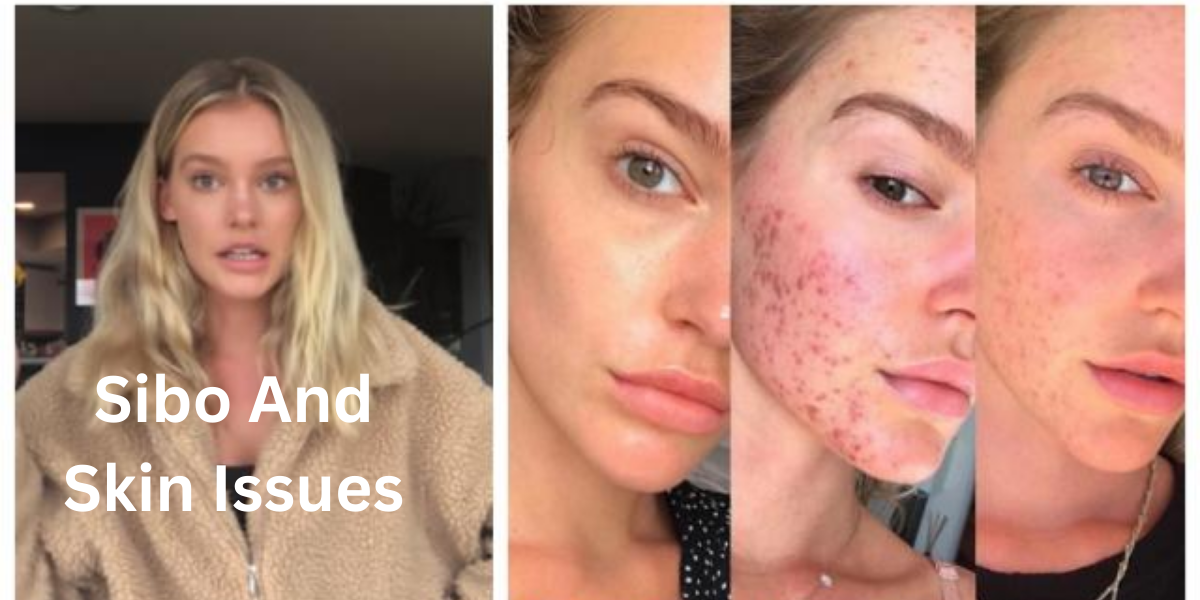Sibo And Skin Issues

Small intestinal bacterial overgrowth (SIBO) is a condition where there is an excessive growth of bacteria in the small intestine. The symptoms of SIBO can range from mild to severe and can affect multiple systems of the body, including the skin. Skin issues associated with SIBO are often overlooked and misdiagnosed, leading to improper treatment. In this article, we will discuss SIBO and its association with skin issues.
What is SIBO?
Small intestinal bacterial overgrowth (SIBO) is a condition where there is an overgrowth of bacteria in the small intestine. The small intestine is a part of the digestive system that is responsible for digesting and absorbing nutrients from food. It is normally not heavily populated with bacteria, but in SIBO, the number of bacteria in the small intestine increases significantly, leading to various symptoms.
Symptoms of SIBO
SIBO can cause a wide range of symptoms, including bloating, gas, diarrhea, constipation, abdominal pain, and fatigue. However, many people with SIBO also experience skin issues, which are often overlooked or misdiagnosed. Skin issues associated with SIBO include:
Acne
Acne is a common skin condition that is characterized by the presence of pimples, blackheads, and whiteheads. While acne can be caused by a variety of factors, including genetics and hormonal imbalances, studies have found that SIBO can also contribute to the development of acne. In SIBO, there is an overgrowth of bacteria in the small intestine, which can lead to the production of toxins that can cause inflammation and irritation in the skin, leading to the development of acne.
Rosacea
Rosacea is a chronic skin condition that is characterized by redness, flushing, and the development of small, red bumps on the face. While the exact cause of rosacea is unknown, studies have found that SIBO may play a role in its development. In one study, researchers found that patients with rosacea were more likely to have SIBO than those without the condition.
Eczema
Eczema is a common skin condition that is characterized by dry, itchy, and inflamed skin. While the exact cause of eczema is unknown, studies have found that SIBO can contribute to its development. In SIBO, there is an overgrowth of bacteria in the small intestine, which can lead to the production of toxins that can cause inflammation and irritation in the skin, leading to the development of eczema.
Hives
Hives are a common skin condition that is characterized by the sudden appearance of itchy, raised, red bumps on the skin. While hives can be caused by a variety of factors, including allergies and stress, studies have found that SIBO can also contribute to their development. In one study, researchers found that patients with hives were more likely to have SIBO than those without the condition.
Treatment of SIBO and skin issues
The treatment of SIBO involves the use of antibiotics, probiotics, and dietary changes. Antibiotics are used to kill the excess bacteria in the small intestine, while probiotics are used to restore the balance of good bacteria in the gut. Dietary changes, such as the low FODMAP diet, can also be effective in reducing the symptoms of SIBO.
In addition to treating SIBO, it is also important to address the skin issues associated with the condition. This may involve the use of topical treatments, such as creams and ointments, to help reduce inflammation and irritation in the skin. In some cases, oral medications, such as antihistamines and corticosteroids, may also be prescribed to help alleviate skin symptoms.
It is also important to identify and address any underlying triggers that may be contributing to the development of SIBO and skin issues. This may involve identifying and avoiding certain foods that may be exacerbating the condition, such as high FODMAP foods or foods that are known to trigger inflammation in the body. Stress management techniques, such as meditation and yoga, may also be beneficial in reducing symptoms and improving overall health.
Prevention of SIBO and skin issues
Preventing SIBO and skin issues associated with the condition involves maintaining good gut health and promoting a healthy balance of bacteria in the gut. This can be achieved through the following measures:
- Eating a healthy, balanced diet that is rich in fiber and low in processed foods and sugar.
- Taking probiotics or eating foods that are rich in probiotics, such as yogurt, kefir, and fermented vegetables.
- Practicing good hygiene, such as washing hands regularly and avoiding sharing personal items like towels and razors – White Dots.
- Managing stress through techniques such as meditation and yoga.
- Avoiding the use of antibiotics unnecessarily, as they can disrupt the balance of bacteria in the gut and lead to the development of SIBO.
SIBO is a condition that can affect multiple systems of the body, including the skin. Skin issues associated with SIBO, such as acne, rosacea, eczema, and hives, are often overlooked and misdiagnosed, leading to improper treatment. It is important to address both the underlying cause of SIBO and the associated skin issues to effectively manage the condition. This involves the use of antibiotics, probiotics, dietary changes, and topical or oral medications, as well as identifying and addressing any underlying triggers that may be contributing to the condition. Preventing SIBO and skin issues involves maintaining good gut health and promoting a healthy balance of bacteria in the gut through a healthy diet, good hygiene, and stress management techniques.
If you are looking for best dermatologist near you in hurghada, So DR. Tawabti is the best and professional
Dr. Amani Tawabti
Dr. Amani Tawabti is a highly skilled and experienced dermatologist Skin doctor in hurghada, renowned for her exceptional clinical expertise and dedication to providing the highest quality care to her patients. With a passion for helping people achieve healthy, glowing skin, Dr. Tawabti has established herself as one of the leading dermatologists in the region, with a reputation for delivering outstanding results and personalized treatment plans.
As a board-certified dermatologist, Dr. Tawabti has undergone extensive training and education in the field of dermatology, allowing her to diagnose and treat a wide range of skin conditions, including acne, eczema, psoriasis, and skin cancer. With a patient-centered approach, she takes the time to understand each patient’s unique needs and concerns, creating customized treatment plans tailored to their individual requirements.
Dr. Tawabti is committed to staying up-to-date with the latest advances in dermatology, regularly attending conferences and training programs to enhance her knowledge and expertise. With a warm and compassionate demeanor, she creates a comfortable and welcoming environment for her patients, ensuring that they feel at ease throughout their treatment.
Overall, Dr. Amani Tawabti is widely recognized as the best dermatologist in Hurghada, respected by patients and colleagues alike for her exceptional clinical skills, dedication to patient care, and commitment to achieving the best possible outcomes for her patients.





